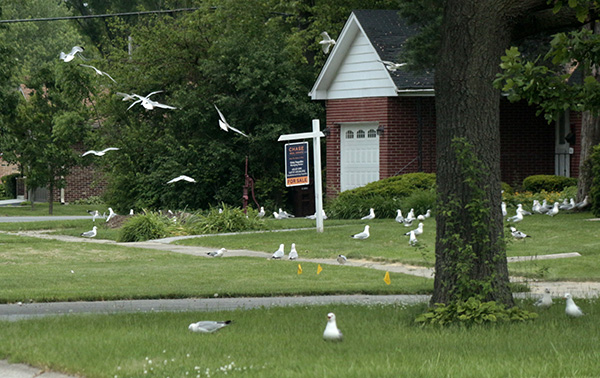Just last week, you could hear the cicadas’ annoying battle cry echoing from the trees aligning streets in Homewood and Flossmoor. They arrived suddenly, and without notice. But they were gone just as quickly.
Just last week, you could hear the cicadas’ annoying battle cry echoing from the trees aligning streets in Homewood and Flossmoor. They arrived suddenly, and without notice. But they were gone just as quickly.
One moment they were swarming backyard green spaces and gardens and the next, their bodies lay lifeless along driveways and in lawns, serving as snacks for the swarms of birds flying by.
Kandis Demeo, an entomologist who lives in one of Flossmoor’s older neighborhoods, said annual cicadas, otherwise known as dog-day cicadas, were responsible for the brief invasion in the South Suburbs and other parts of the Chicago area.
Compared to periodic cicadas that emerge every 17 years and are much larger, dog-days only have a lifespan of two to four years and appear annually. Both spend most of their lives underground, sucking sap from the roots of plants and trees.
By the time we see and hear them, both types of cicadas are in the final stage of their lives, and this only lasts a couple of weeks, Demeo said.
“[This period] is strictly for mating, so they mature and emerge for this big loud music-filled party like they’re going to the club. Then they die,” Demeo said.
Male cicadas are responsible for the loud noises that echo throughout neighborhoods, singing to attract females.
Despite how annoying they may be, cicadas are harmless, for they don’t bite or sting and, generally don’t cause much damage to trees or plants, Demeo said.
Female periodical cicadas lay their eggs in tree branches after mating, which can lead to the splitting of twigs and potential death of tree branches. Researchers say this is often not substantial enough to damage established trees. However, young trees may be at risk of snapping off.
Periodical cicadas are expected to emerge in 2024. Scientists predict that this next emergence in the Chicago area will be one of the biggest in the country and “one of the biggest that we’ve seen in many cycles,” Demeo said.
Homeowners can take precautions for that next cycle by investing in a fine mesh that can be placed over gardens before the periodical cicadas arrive.



